Photo Coverage: Wild Card Productions' LADY DAY AT EMERSON'S BAR AND GRILL
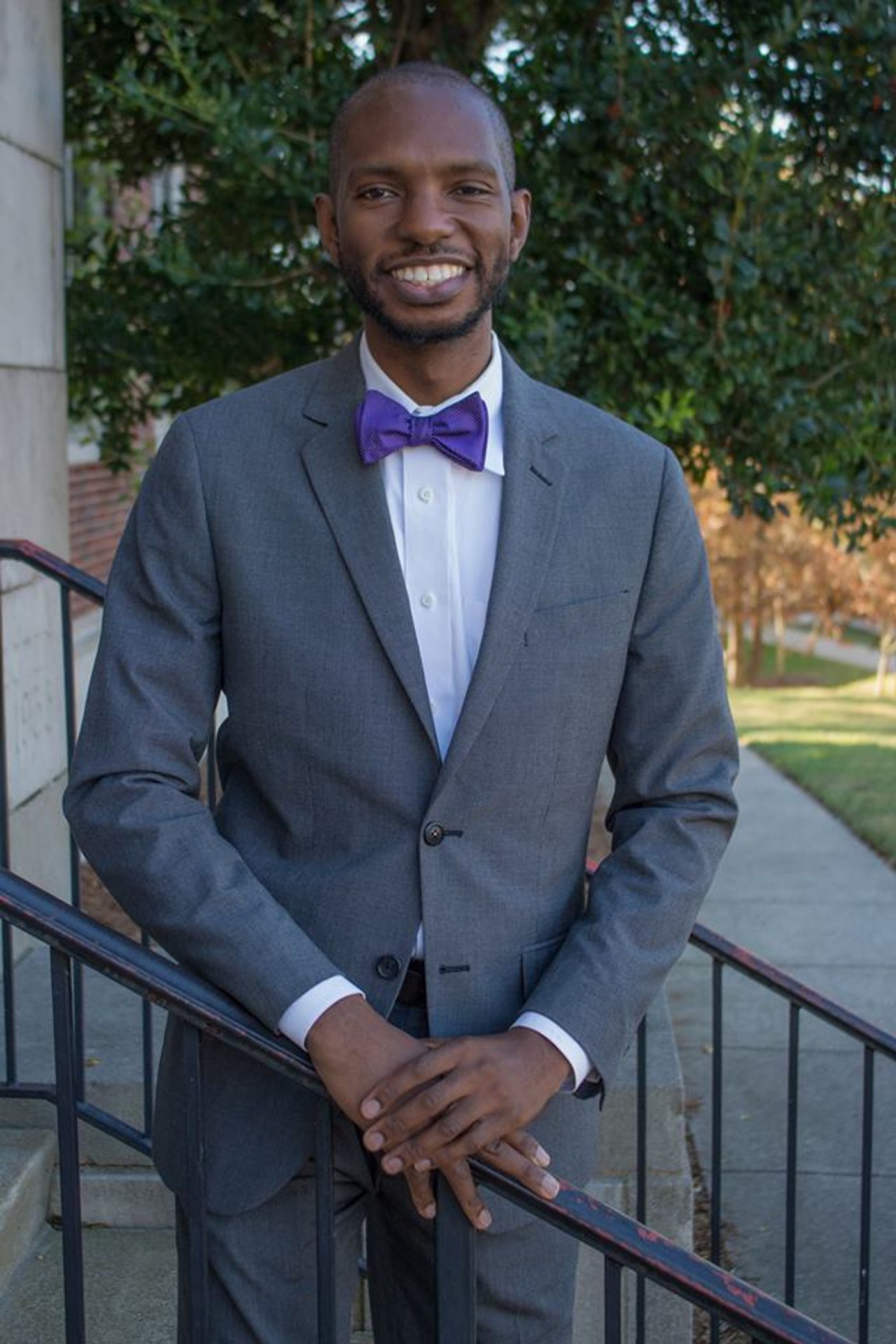
Lady Day at Emerson's Bar and Grill, writer Lanie Robertson's insightful and moving look at jazz legend Billie Holiday and her life and career, continues its run at Brentwood's Towne Centre Theatre. Directed by Dave Ragland and starring Jennifer Whitcomb-Oliva in her stunning onstage transformation to become Lady Day, it's one of the highlights of an especially impressive Nashville theater season filled with strong performances and shows both challenging and introspective.
Ragland and Whitcomb-Oliva first teamed up for a production of Lady Day at Emerson's Barn and Grill in 2014, in a performance at Murfreesboro's Center for the Arts, which is now revived by Wild Card Productions for audiences in 2017. After a hectic tech week that led up to a successful opening weekend, director Ragland sat down to give some insight into the production and why it resonates so deeply for him as an artist.
What's it been like to return to Lady Day at Emerson's Bar and Grill? The return to this show, for me, has been a fascinating challenge. It can be treacherously easy to relish the 2014 production at Murfreesboro Center for the Arts. (I'm ever grateful to CFTA for giving this show a shot.) However, for this production we had to vary the approach to almost every aspect: Billie, Emerson, lighting, music, and more. I'm still in awe that Wildcard Productions chose this play as their inaugural show. One thing that I do as an artist- and I advise for younger artists - is to let the space speak. Ask yourself how can the story-the message -be conveyed here and now. Towne Center Theater is a very unique space; it has a history and life of its own. It came to me to not to try and "force" another set onto the stage, but rather let the room just "be." Hence, this run of the show now exudes a dusky sophistication and elegance that I've never seen before in a theater. Furthermore, our stage manager, Deborah Arvin, has been instrumental in creating the look.
How does the show speak to you, as a director and an artist? I'm reminded of the old jazz standard (and Billie Holiday staple) "Gone with the Wind". Being in the spotlight is but a flash in a pan. For Billie, the stage, the spotlight, the music has been joy and pain. These things, for her, led to sordid relationships and substance abuse that only brought more (if only temporary) joy and pain. I strive to convey for the audience a journey of both enchantment and misery.
How does Billie Holiday and her experiences speak to contemporary audiences? To start, the music is timeless. The musical team brings new life and charm into the musical numbers. The racial allusions are still understood. In the monologue about touring with Artie Shaw, the quip "then we traveled to North Carolina, South Carolina, Georgia...and worse" is still comprehensible. Moreover, most of us can relate on some level to doing things that we know we shouldn't for love. There are a couple of nuggets in the show as well. There are some good lines about self-worth in one Billie's monologues that we originally intended to cut. I left it in because - whether Mr. Robertson wrote it himself or it was excerpted from Billie herself - it is still relevant today.
From our review of Lady Day at Emerson's Bar and Grill: Clad in a gorgeous, emerald-green jersey gown with slight ruching on her left hip, with bejeweled cuffs, she looks every inch the star she is charged with portraying. She is, at first, easily recognizable as the Jennifer Whitcomb-Oliva we've seen on a wide range of Nashville stages, from Nashville Rep, Studio Tenn, ACT 1 and any of the other local companies lucky enough to have her work with them. Then, she opens her mouth to sing and she instantly becomes Lady Day and the actress is somehow lost, almost unrecognizable, as she shape-shifts into a legend. The transformation is remarkable.
Certainly, we've all known Jennifer is immensely talented (here's something you may not know: I've known her since she was a very little girl and when I first encountered her as an adult, it was quite some time before I realized she was the same boisterous, beaming child I once knew) since she first stepped onto a stage, but that doesn't prepare you for her Billie Holiday. Not only is her onstage demeanor completely changed, but her voice - that powerful instrument that has been classically trained and which has been heard singing nearly every popular song you can recall - seems channeled somehow, as if Billie Holiday has taken over her soul and body and issuing forth from her mouth are the sounds of the tremendous songstress whose unique gift you imagined was unparalleled.
Every note, every gesture, every movement seems a gift from the heavens and as Whitcomb-Oliva shows us the onstage disintegration of the bravado and panache that Holliday expressed in her heyday, only to see it sapped from her body as her travails continued and the pain that filled her life takes over her very being, the transcendent performance becomes somehow richer, deeper and more heartbreaking. As Lady Day recalls her own influences - Chattanooga-born Bessie Smith is an idol (she pays tribute with a wonderful raucous version of "Gimme a Pigfoot (And a Bottle of Beer)"), as is Louis "Pops" Armstrong and her own beloved, if distant, mother and father (a man she never heard sing due to the mustard gas that burned his lungs in World War I - the war to end all wars that only served as a harbinger of more horrors and atrocities to come) - her reason for being becomes more apparent and Whitcomb-Oliva's performance only becomes more startling, stunning you with its audacity and the actor's commitment to her role.
And when she sings, you will be transported to a different realm, one perhaps unexperienced until that moment. Whitcomb-Oliva closes Act One with a rendition of "God Bless the Child" that is filled with plaintive longing and the unrepressed need for loving contact. In Act Two, she delivers a heart-wrenching version of "Strange Fruit," a song described as "a declaration of war...the beginning of the civil rights movement" and through which Holiday "crafted a relationship to the song that would make them inseparable." If you are not as moved by the song as Holiday's first audiences probably were when they heard it, you are too emotionally stunted to appreciate the power of art.
When Whitcomb-Oliva recounts the prejudice and bigotry that African-Americans, no matter their station in society, were forced to endure, you may find yourself squirming in your seat, your cheeks burning with the shame that every person who has ever treated anyone disdainfully should have ever felt, you hopefully will be enlightened - not just by the history of a movement, a time and place we hoped was long behind us which today seems ever more relevant. Whitcomb-Oliva's tremendous gift of creativity and the ability to bring to life an artist of another era to life is breathtaking. You owe it to yourself to witness it.
Lady Day at Emerson's Bar and Grill. By Lanie Robertson. Directed by Dave Ragland. Produced by Kate Adams Kramer and Patrick Kramer. Stage managed by Deborah Rhodus Arvin. Presented by Wild Card Productions at Towne Centre Theatre, Brentwood. Through July 29. Running time: 1 hours, 45 minutes (with one 15-minute intermission). For tickets, go to www.townecentretheatre.com or call (615) 414-0970.
photos by Dave Ragland

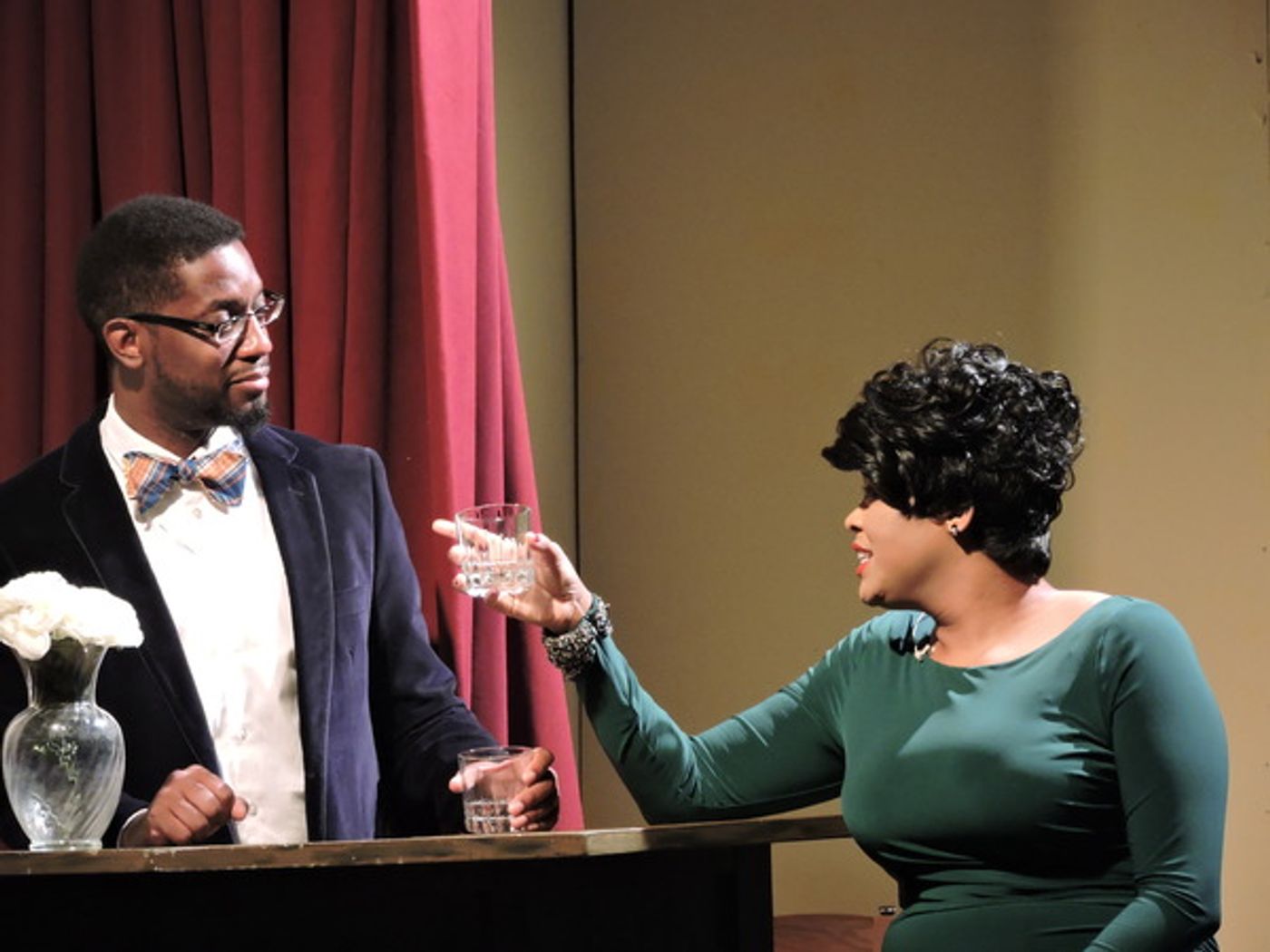
Marquan Martin as Emerson and Jennifer Whitcomb-Oliva as Billie Holiday in LADY DAY AT EMERSON'S BAR AND GRILL
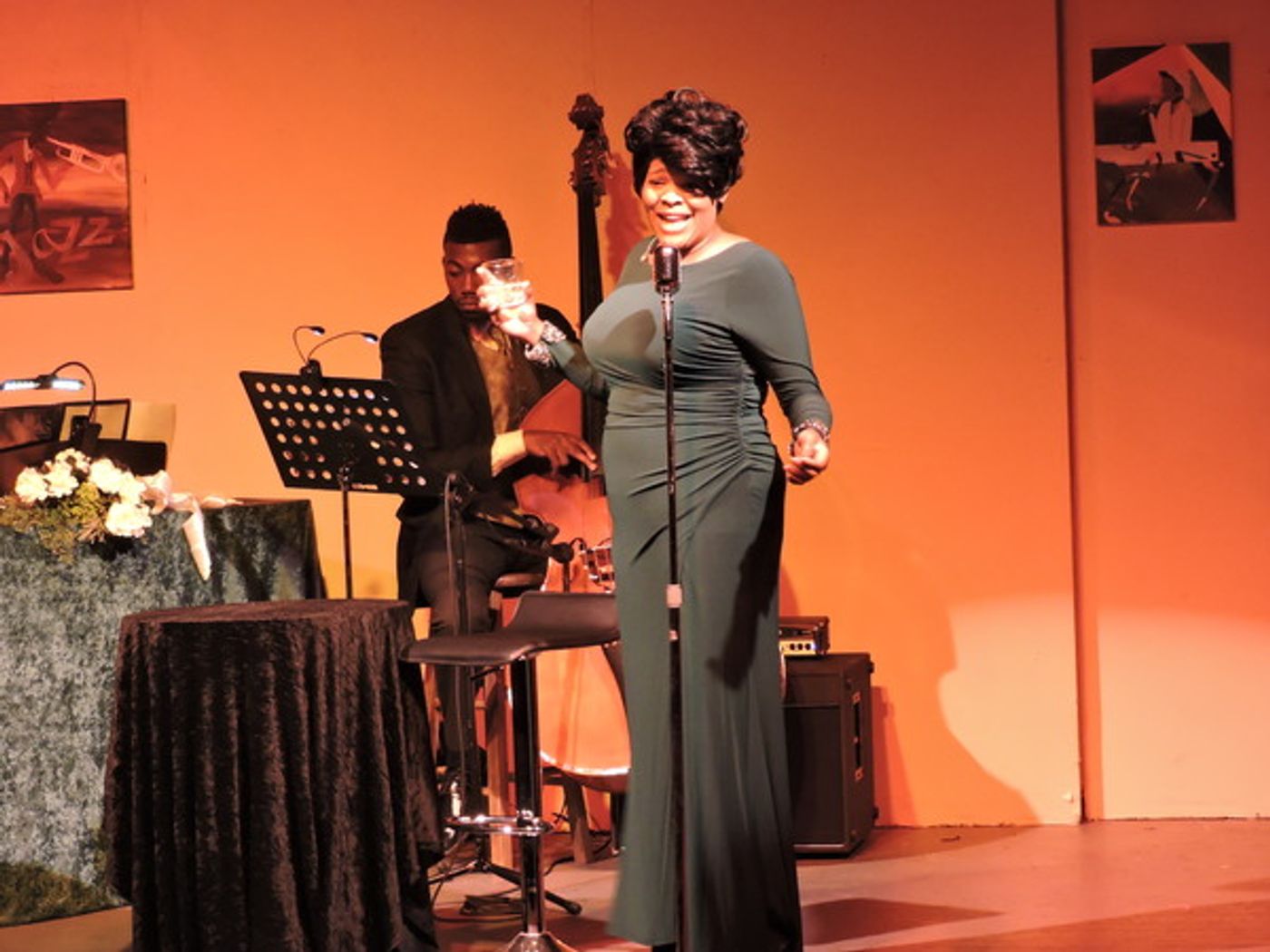
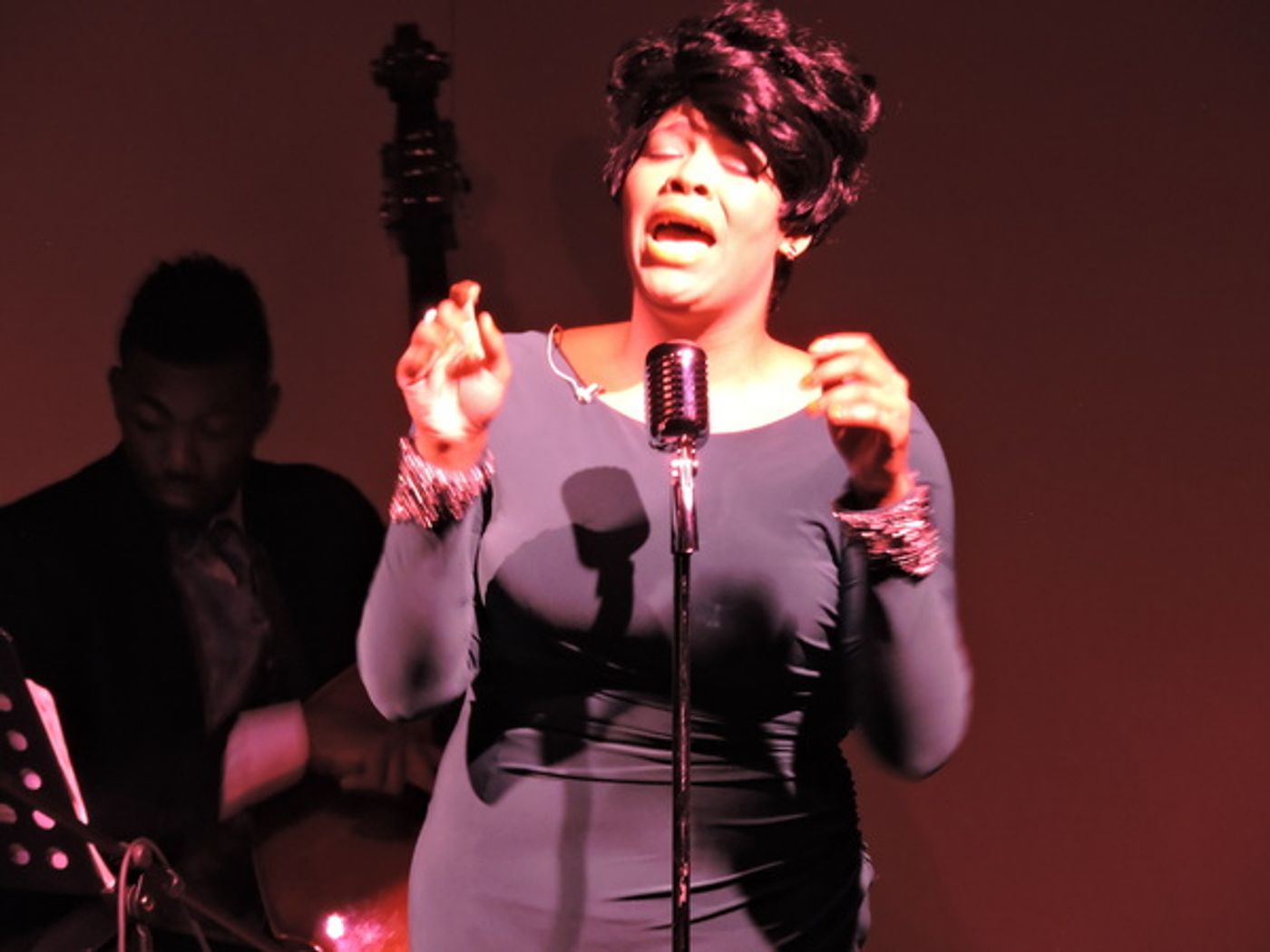
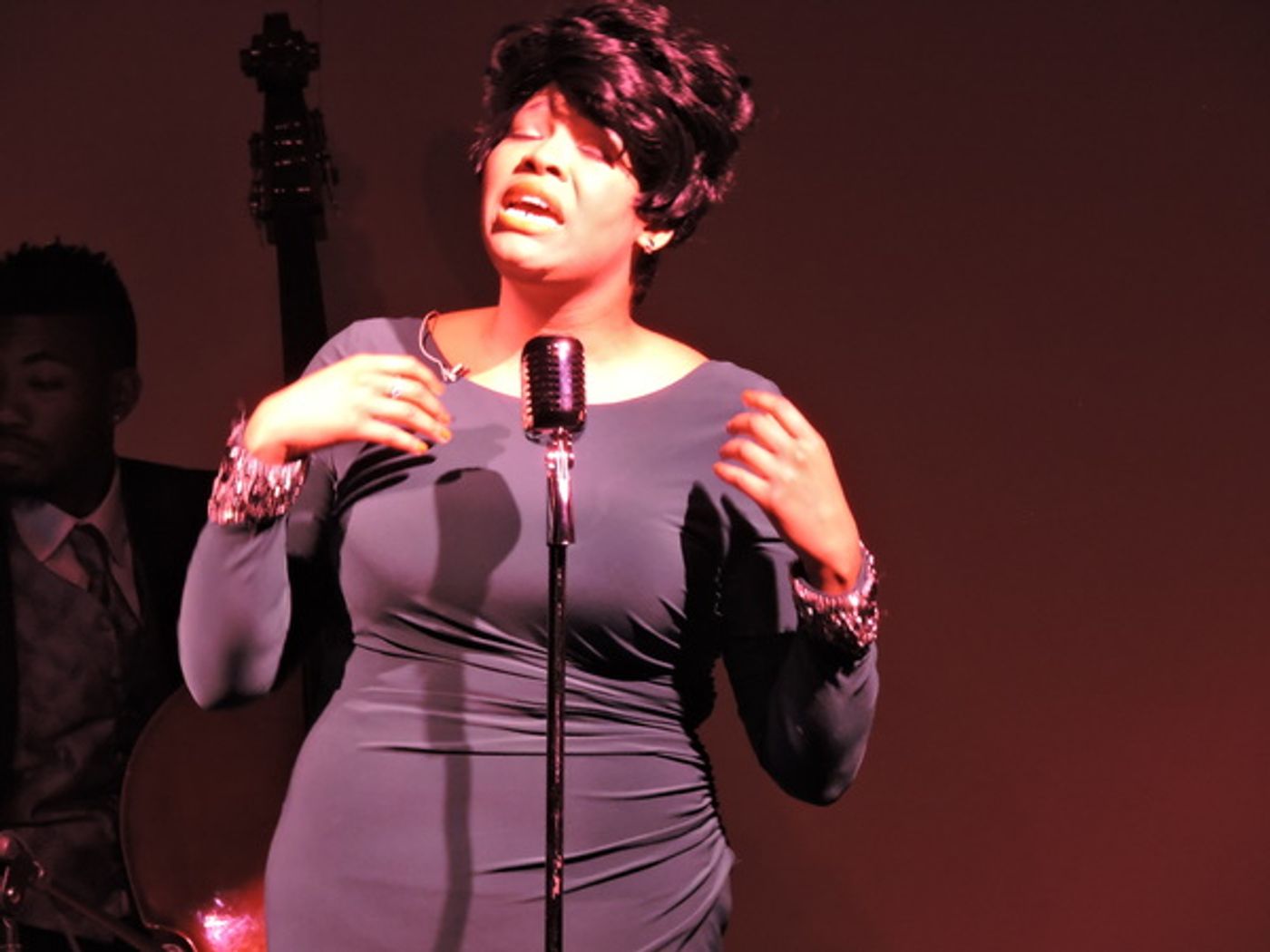
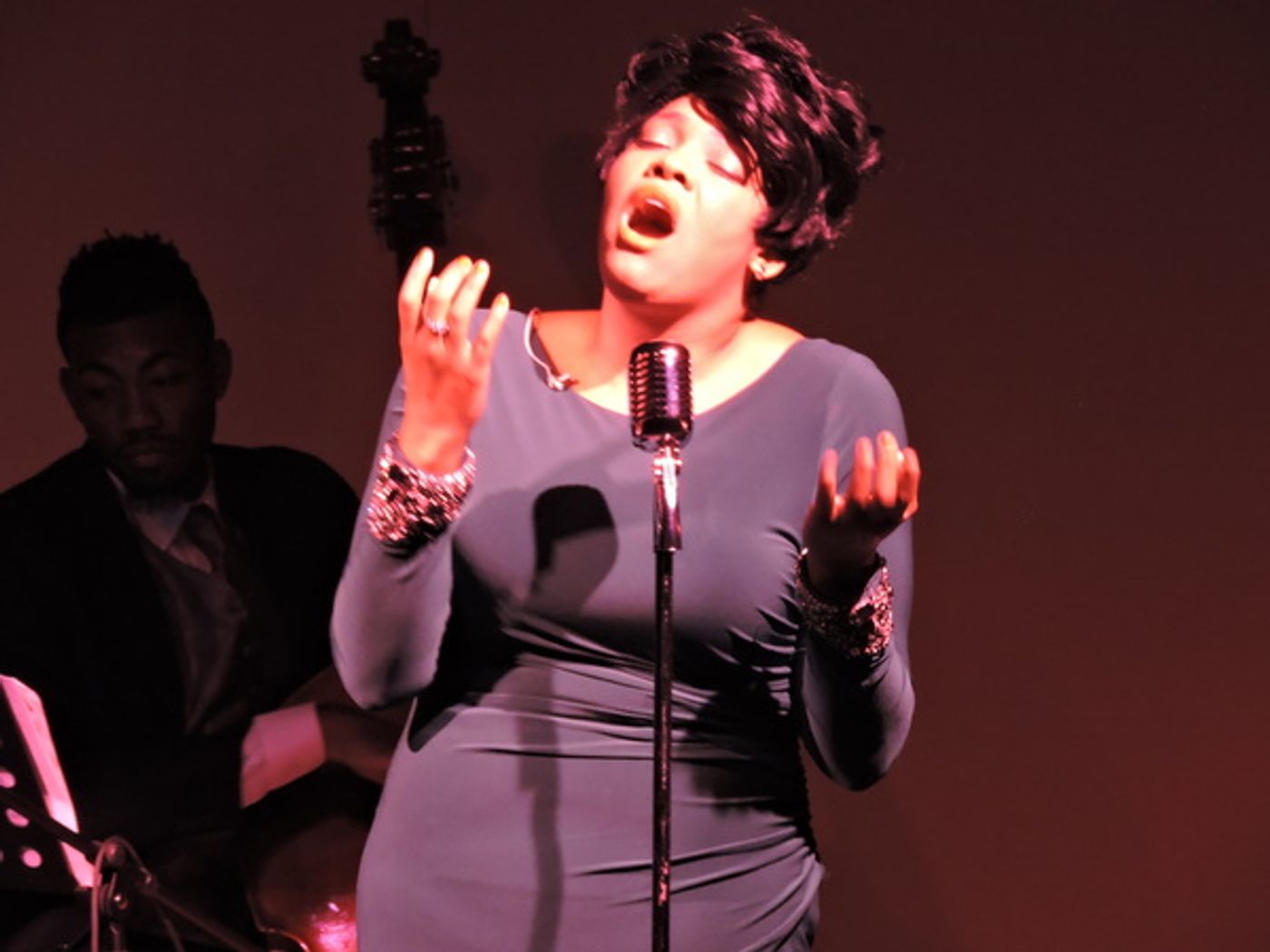
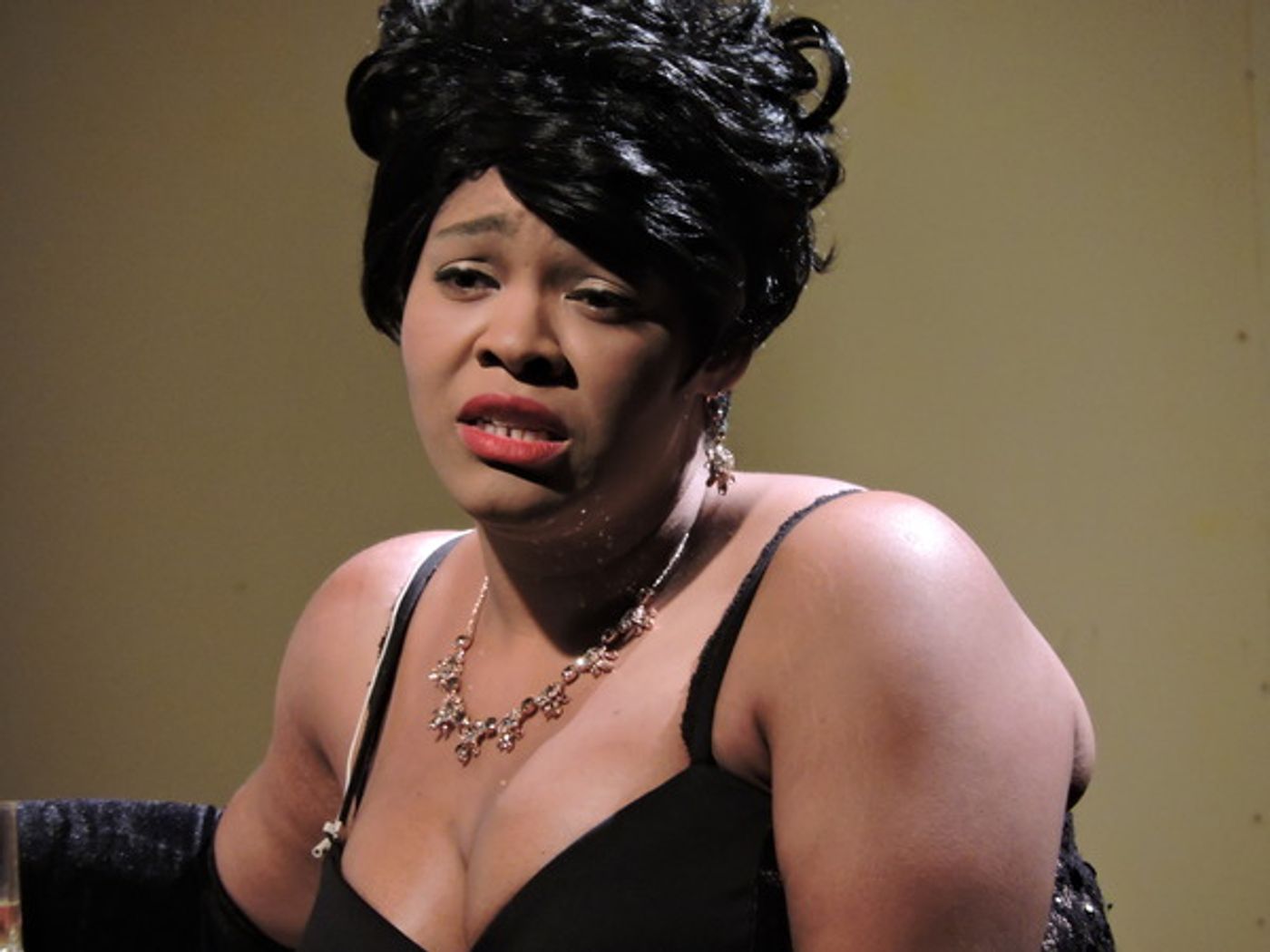
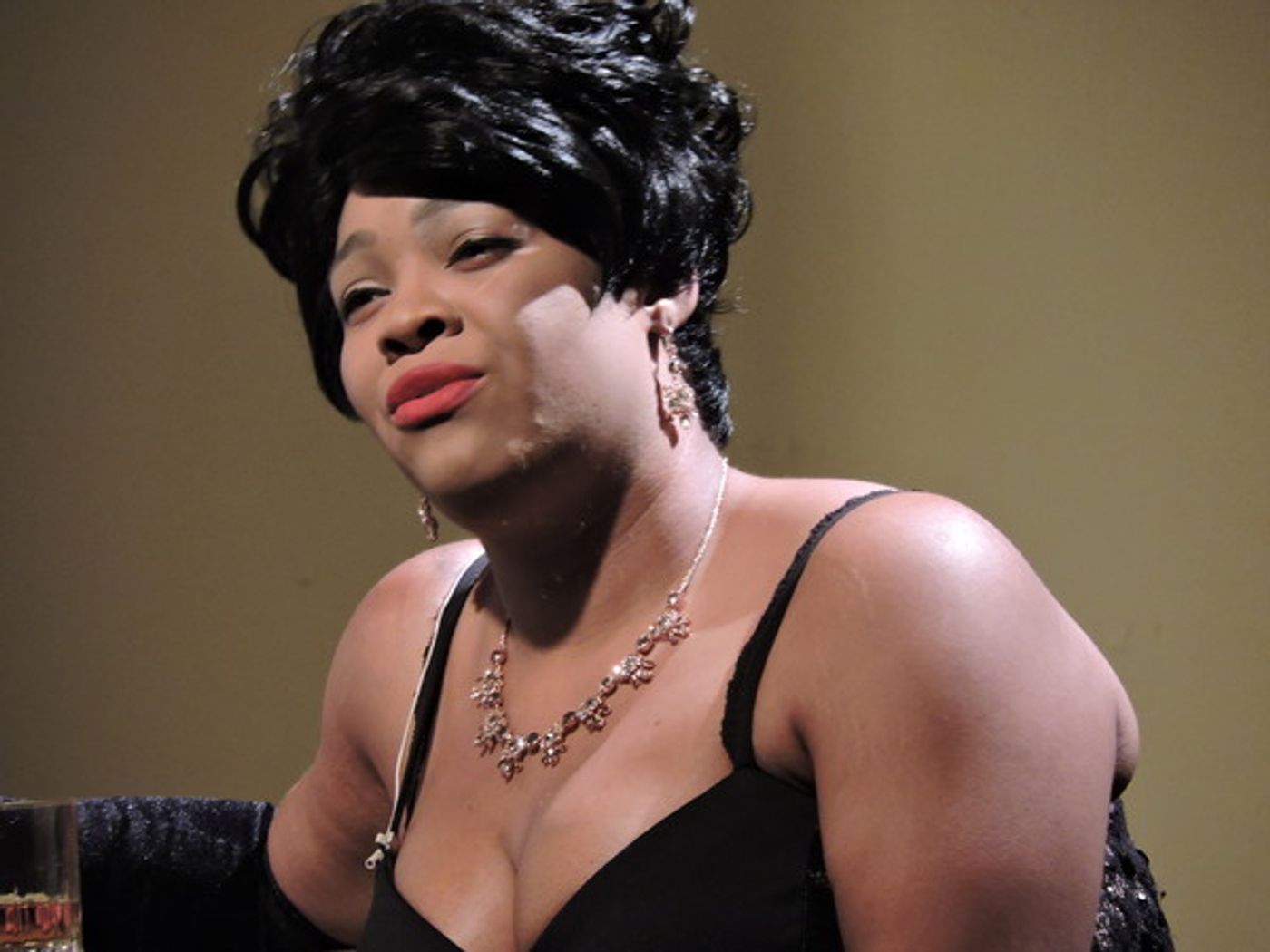
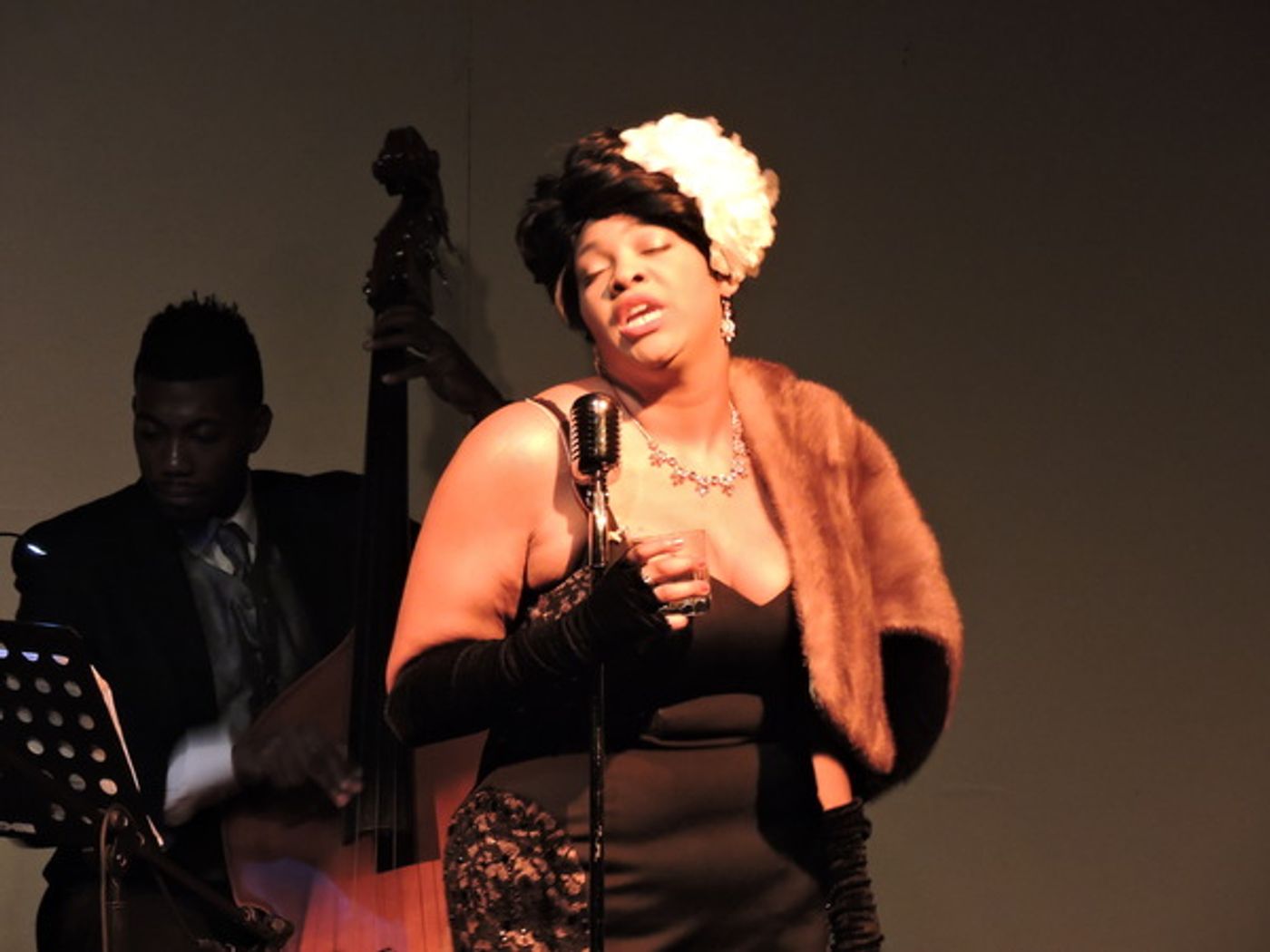
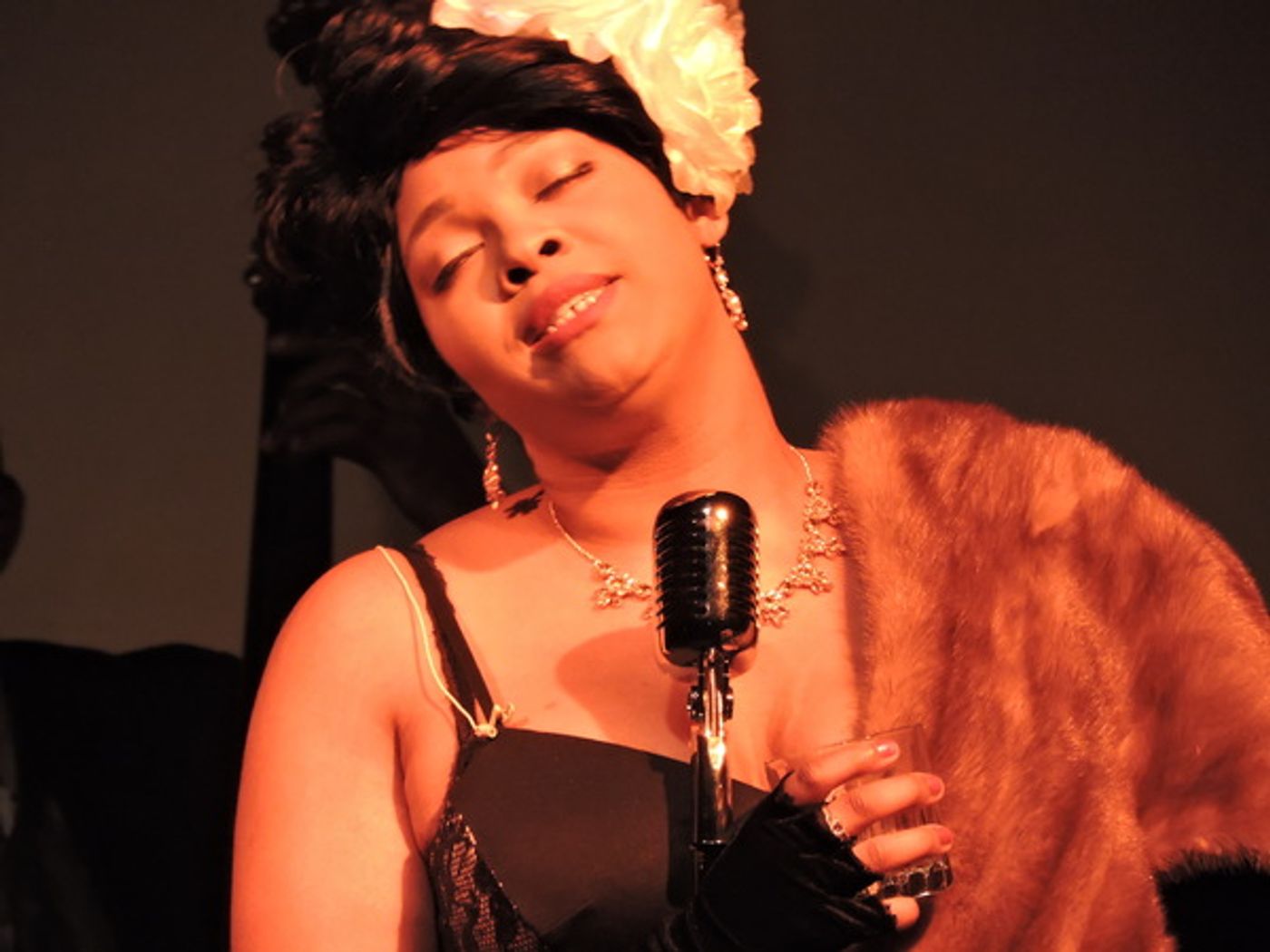
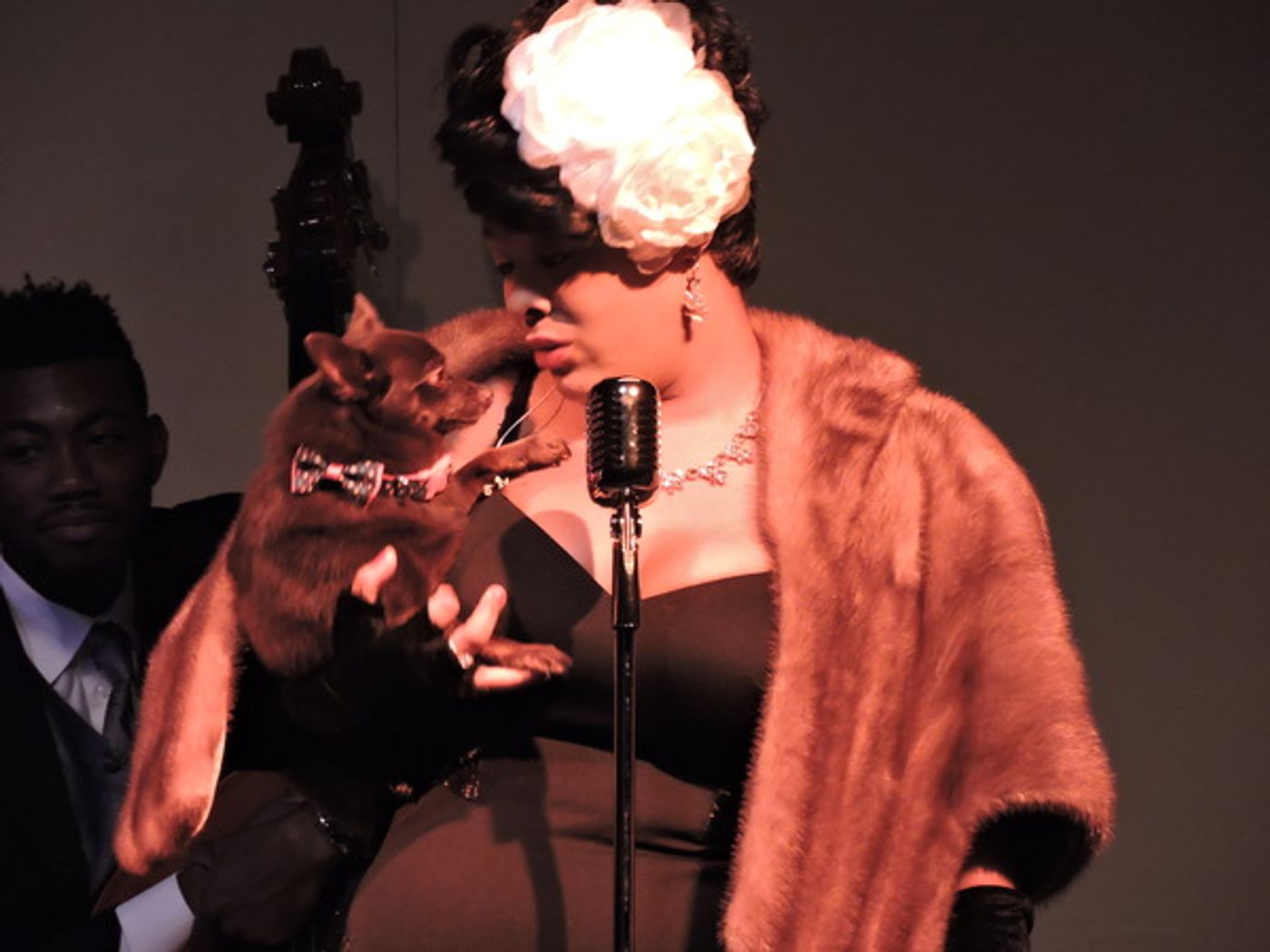
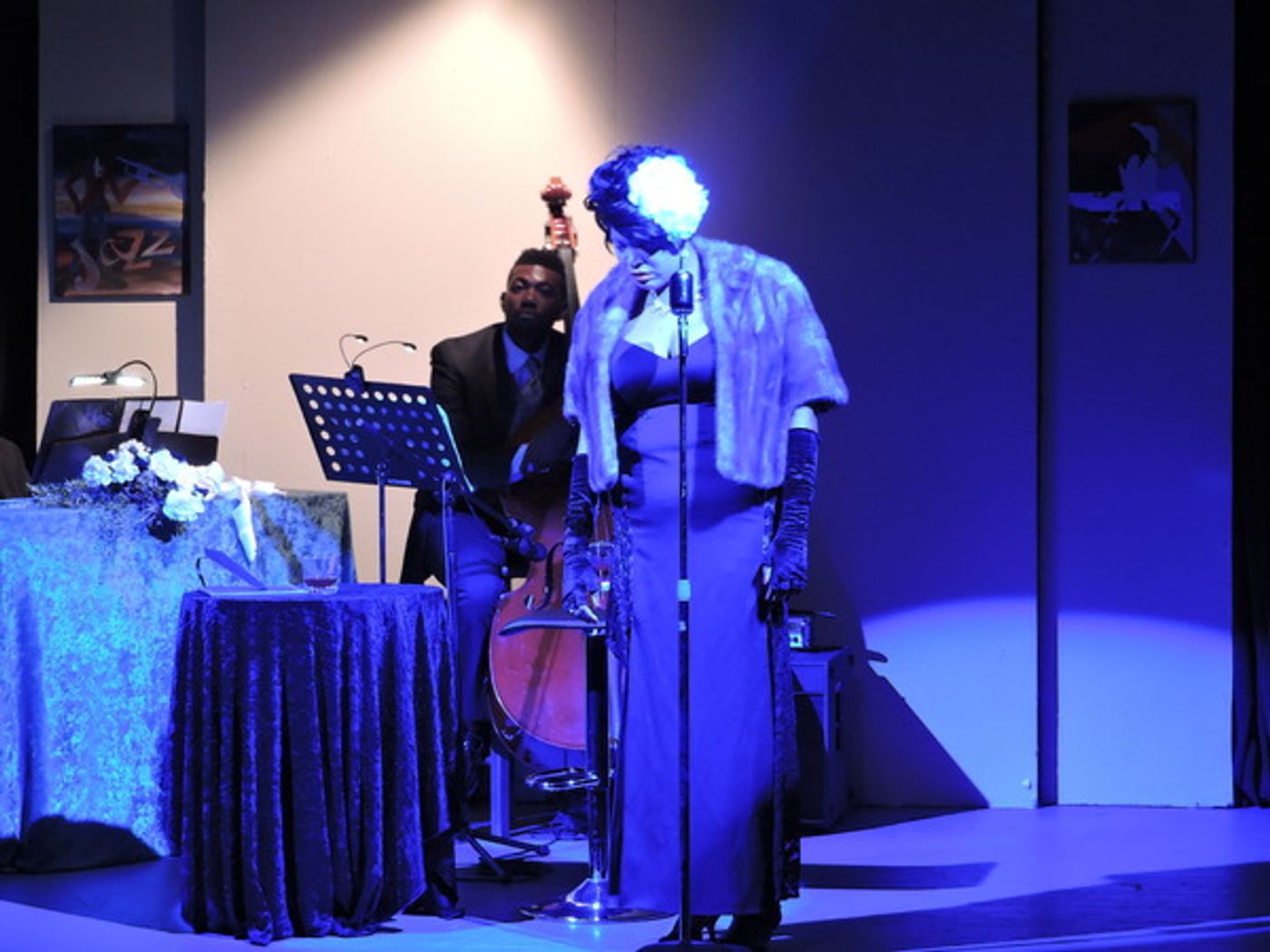
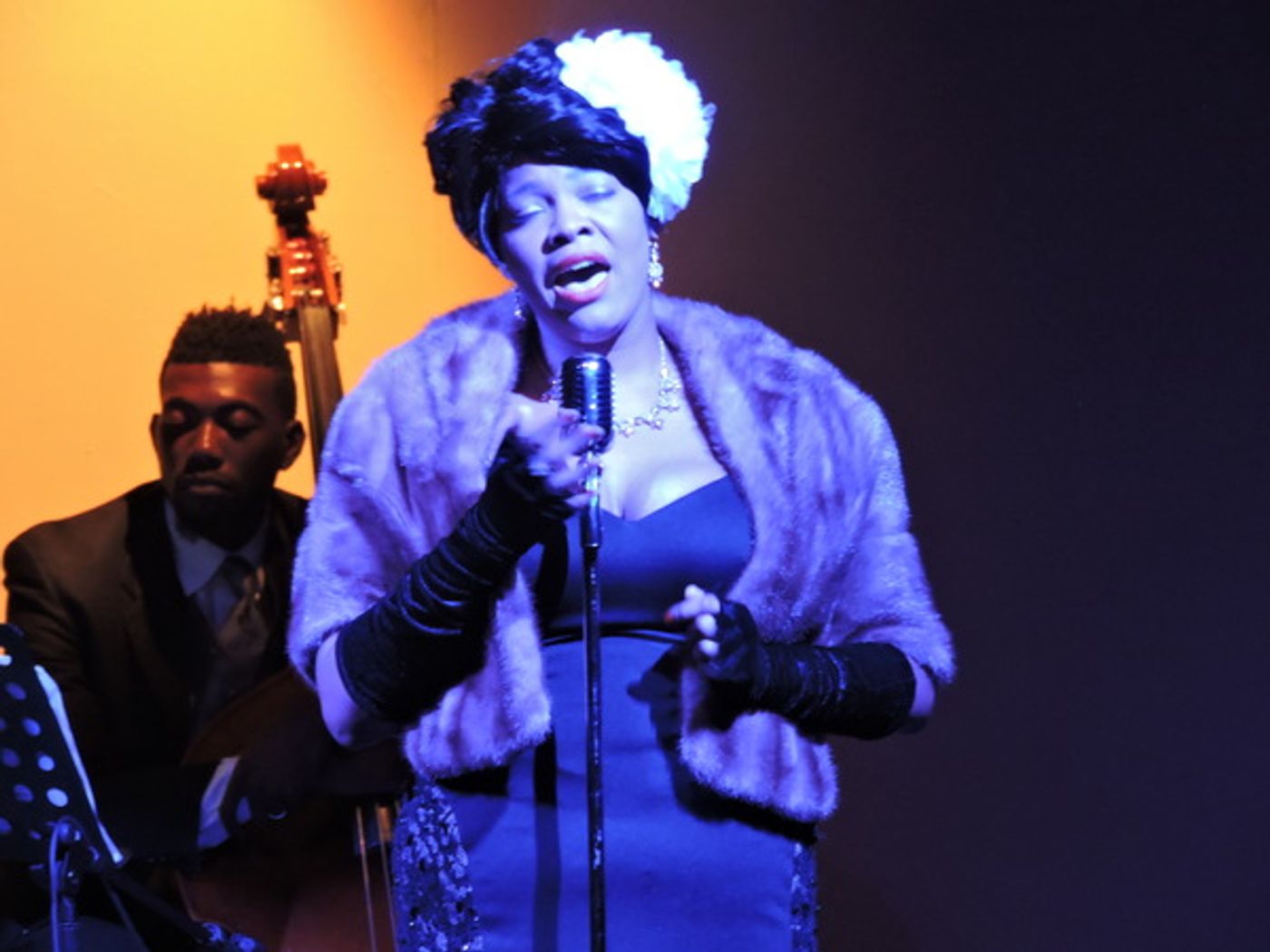
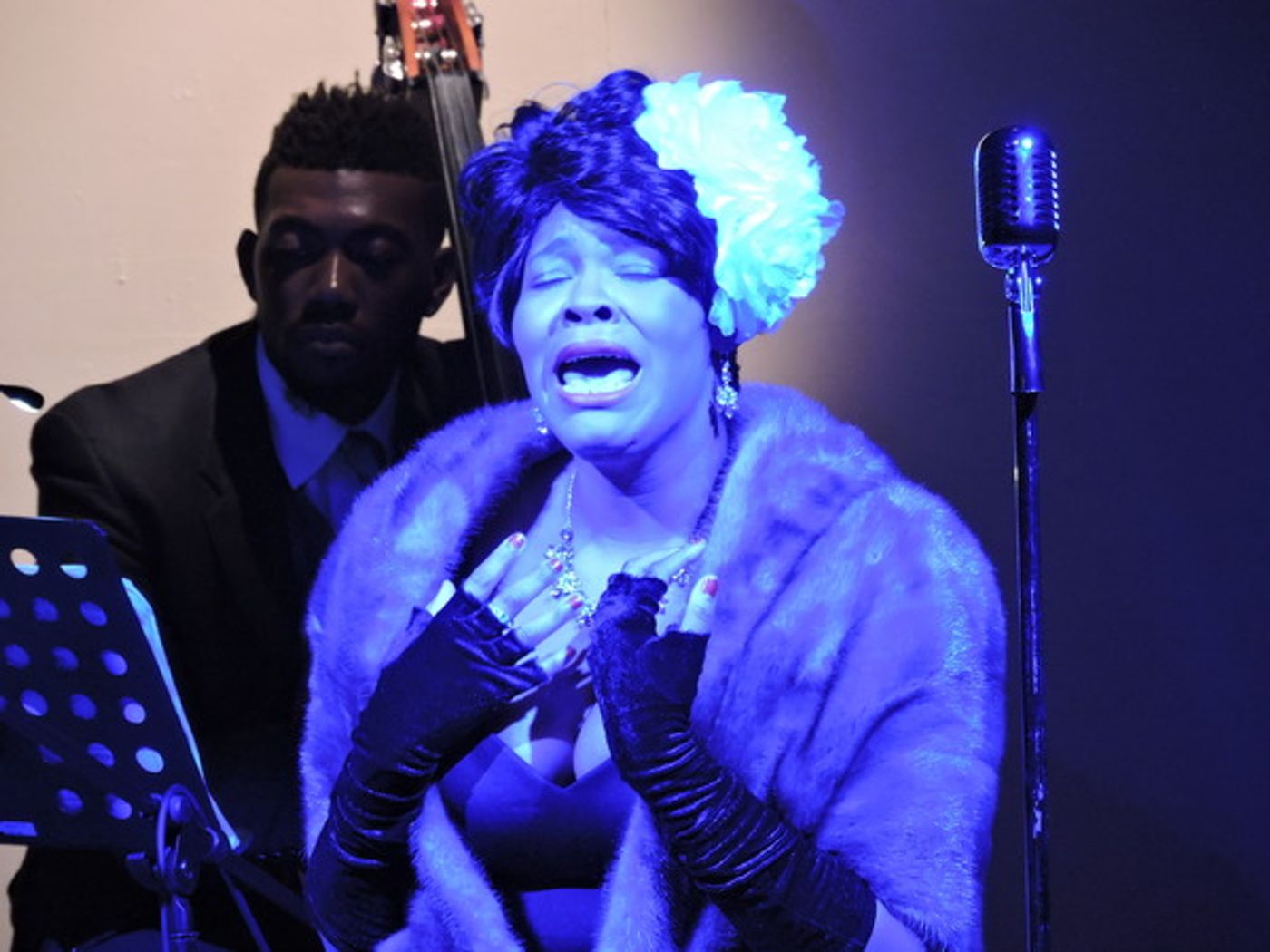
Videos

